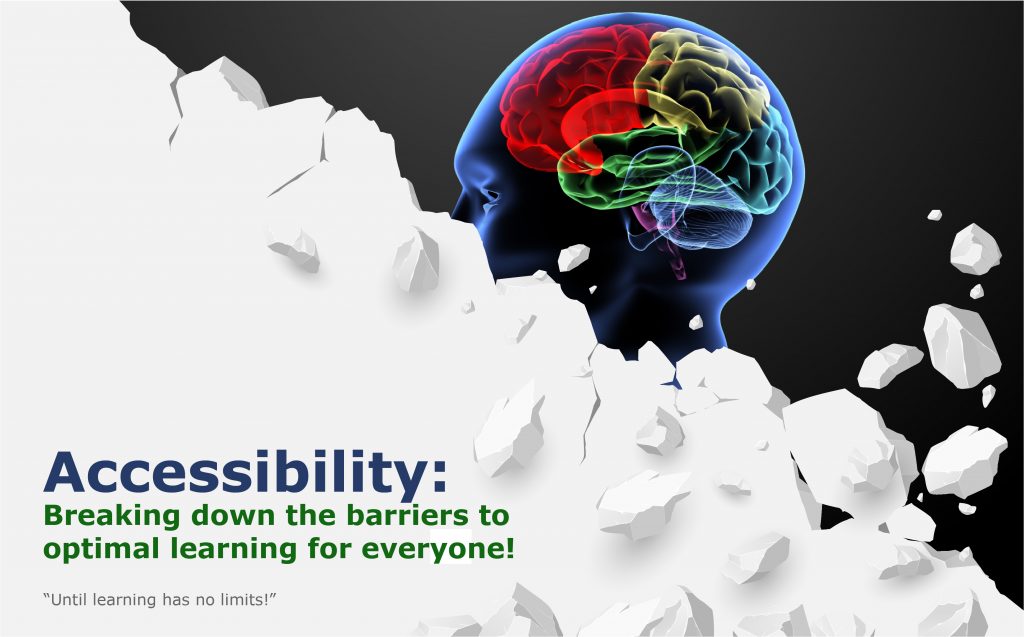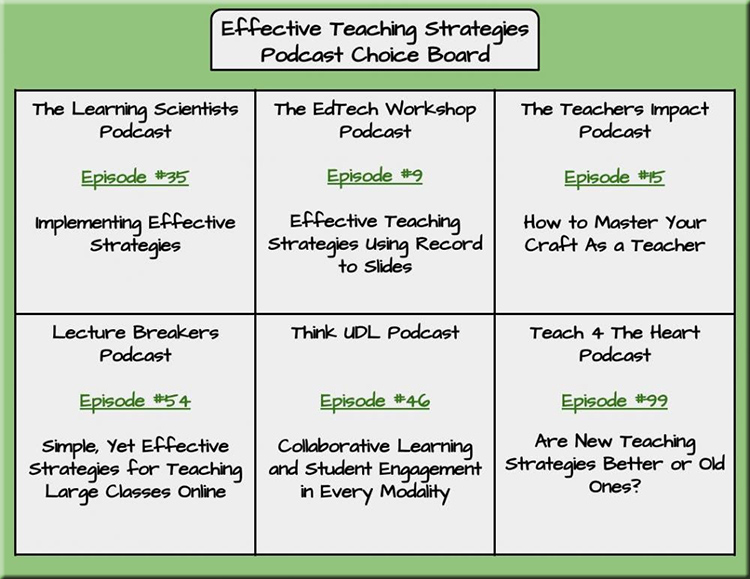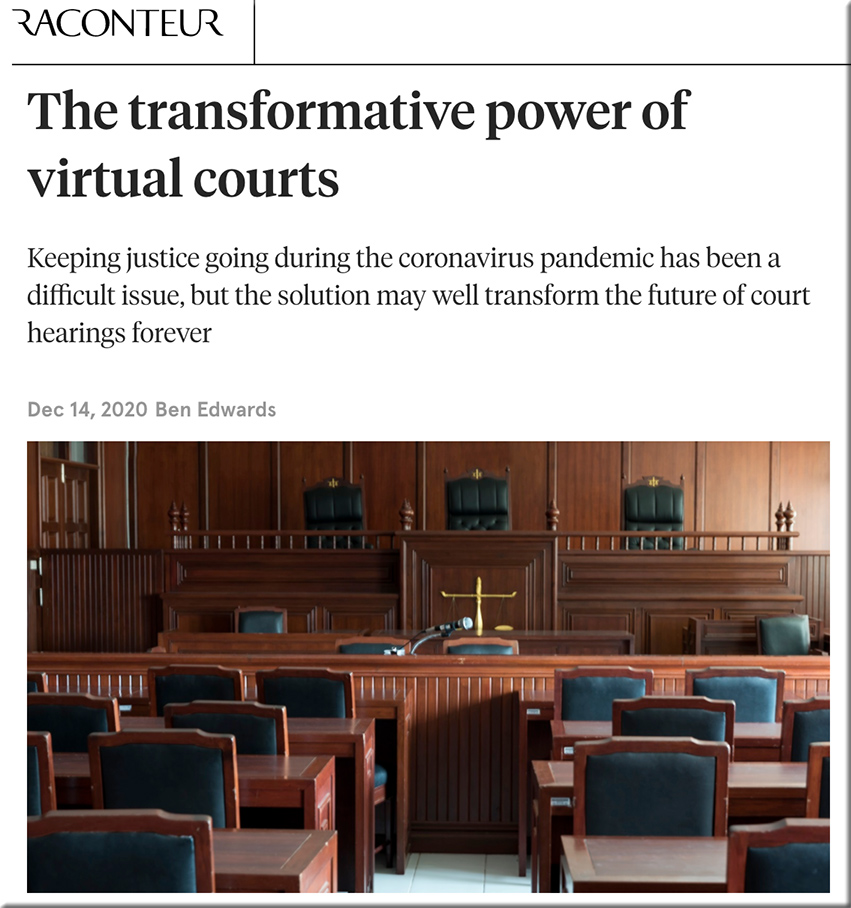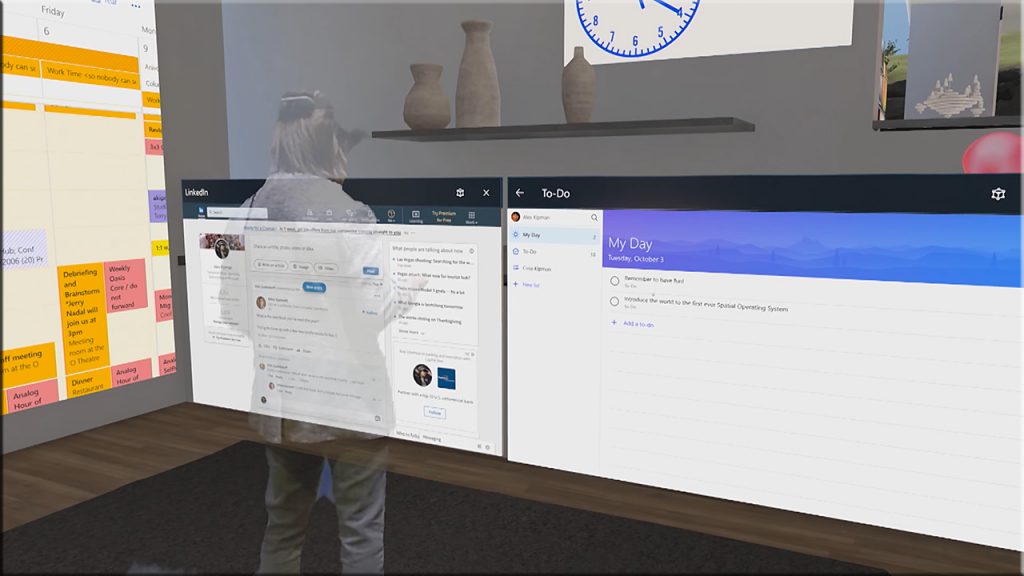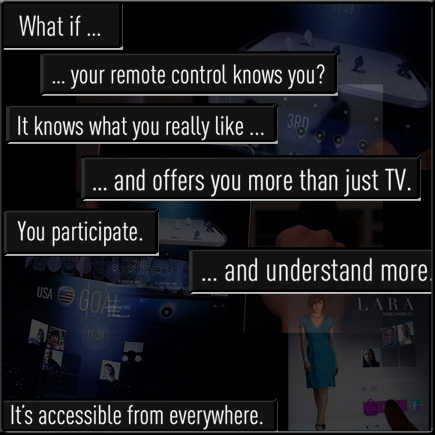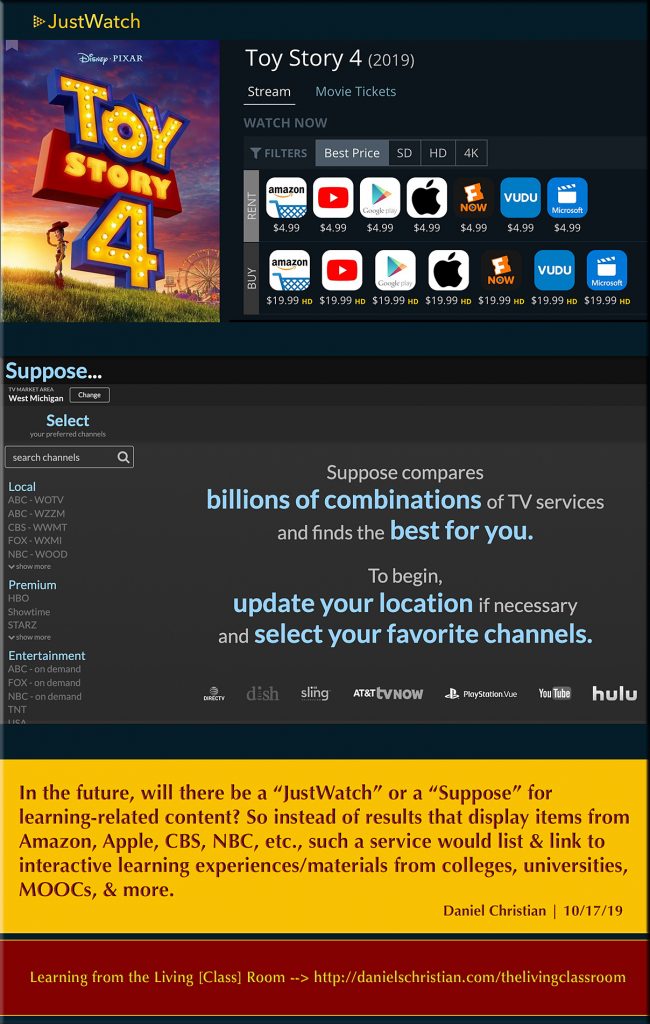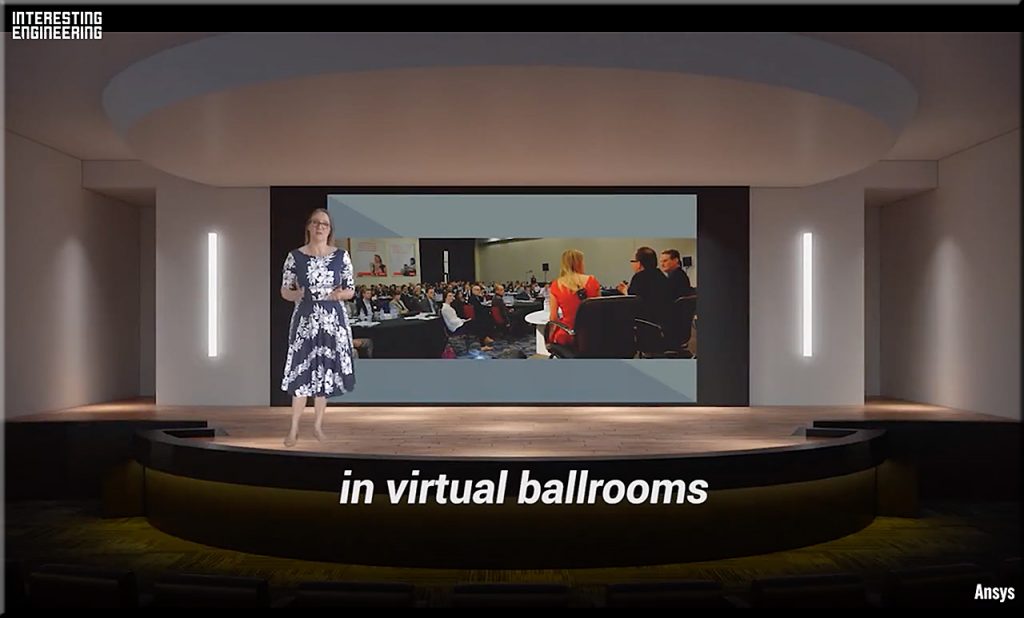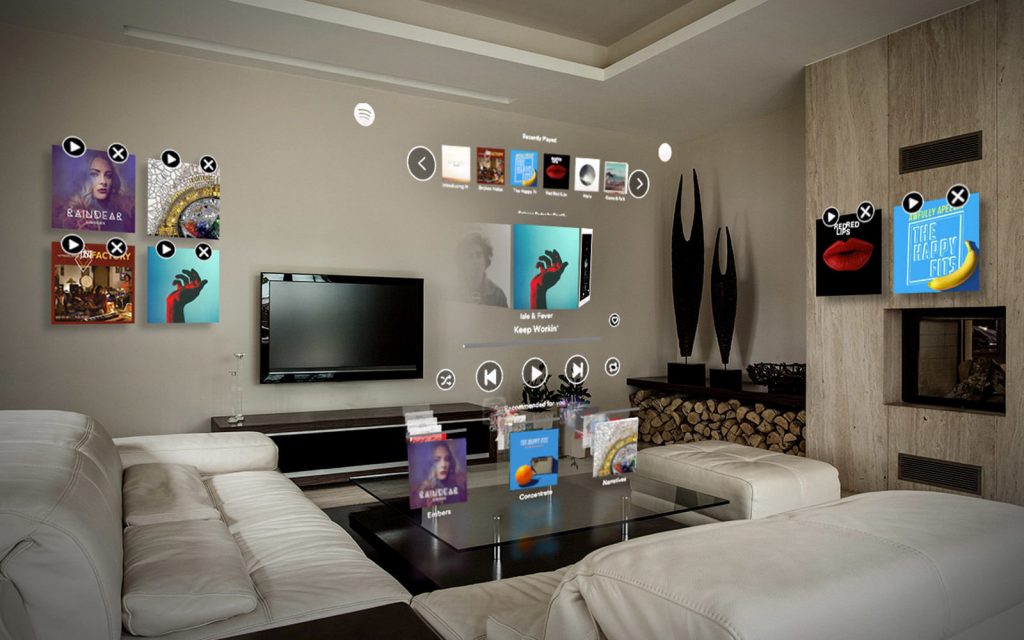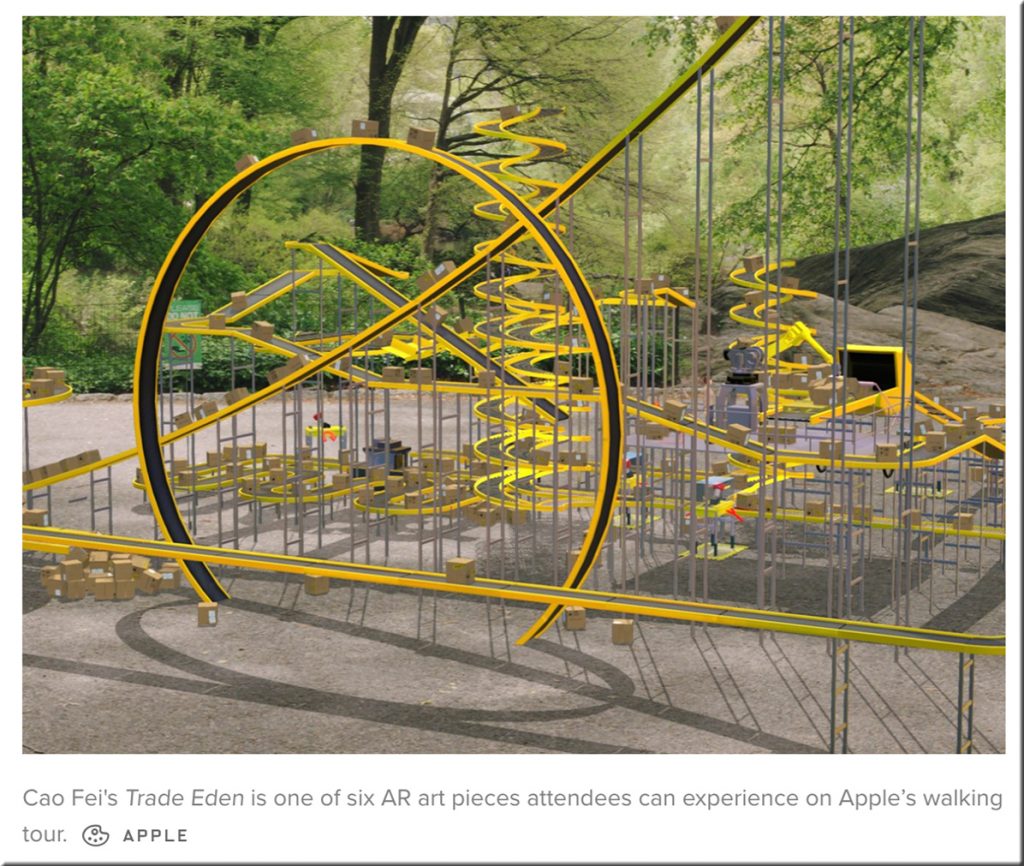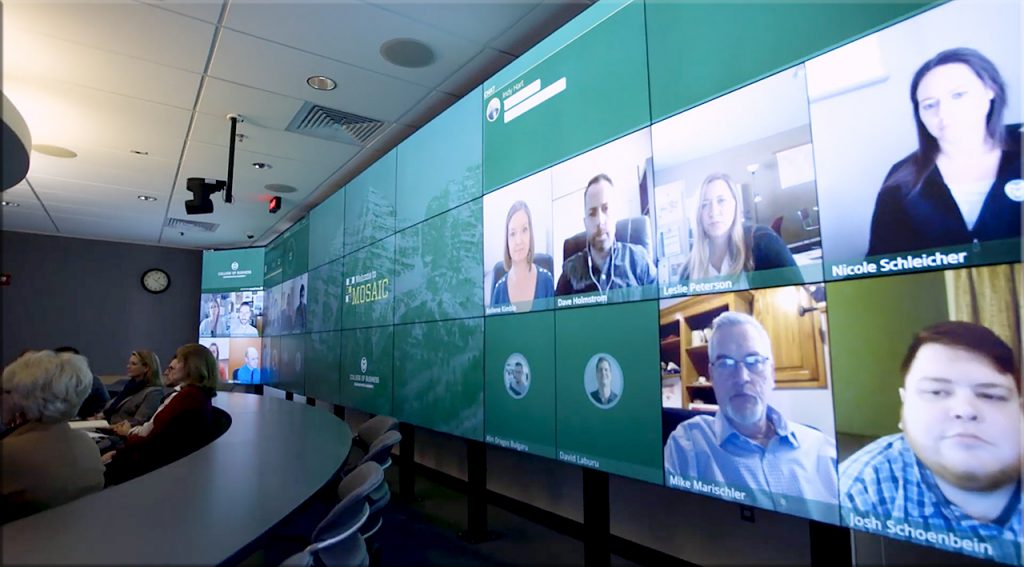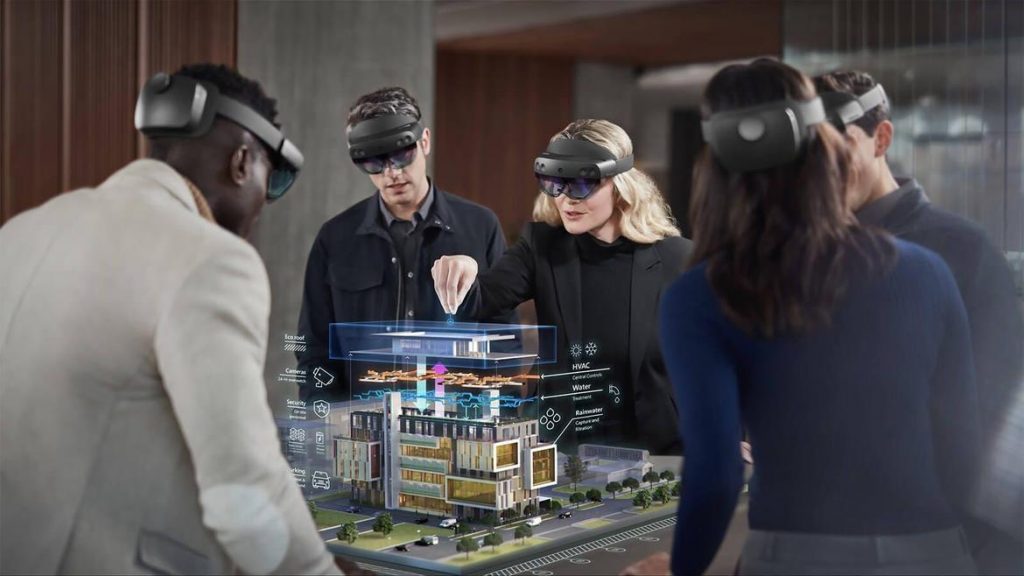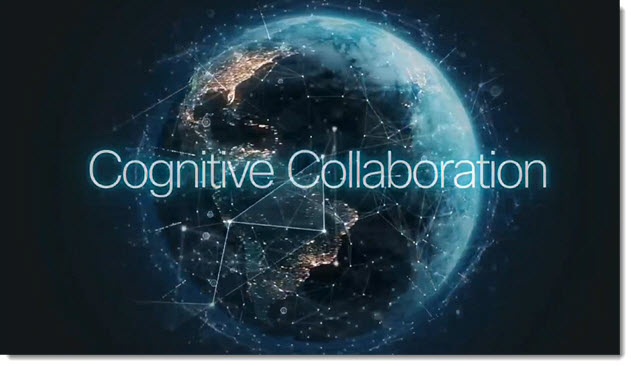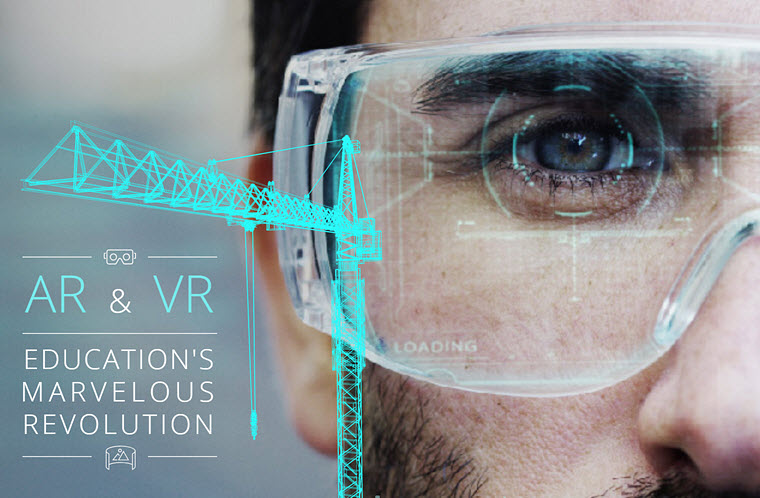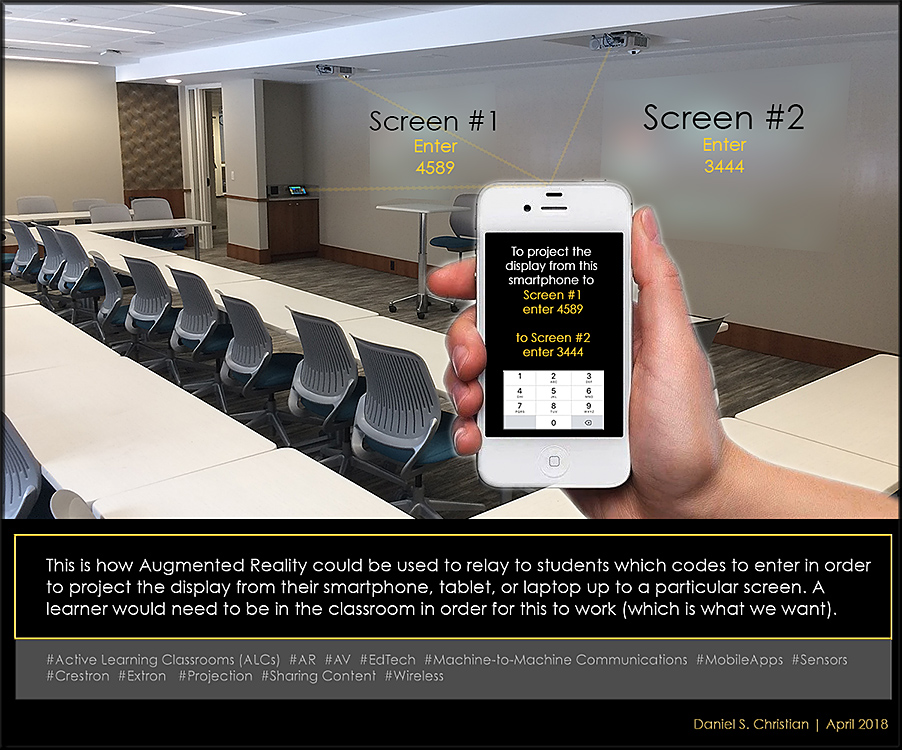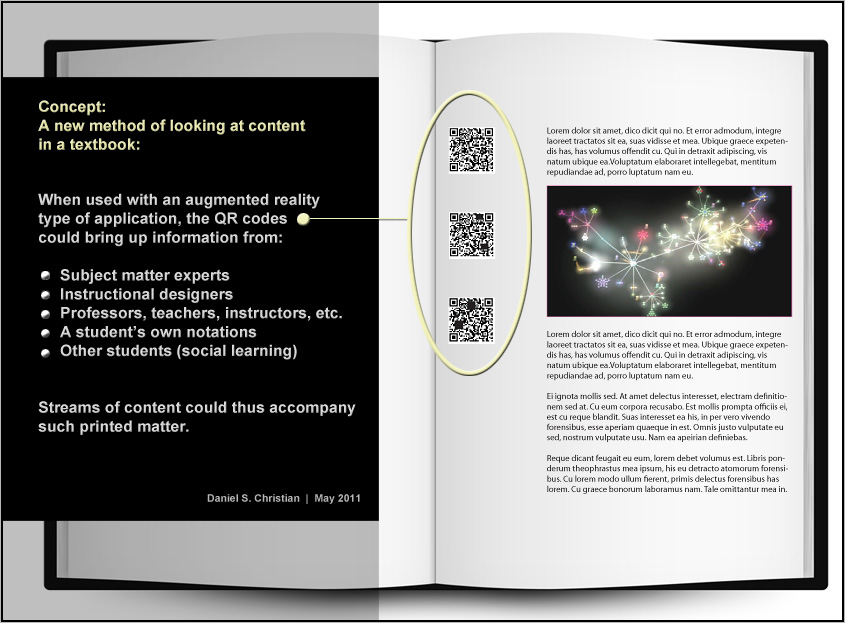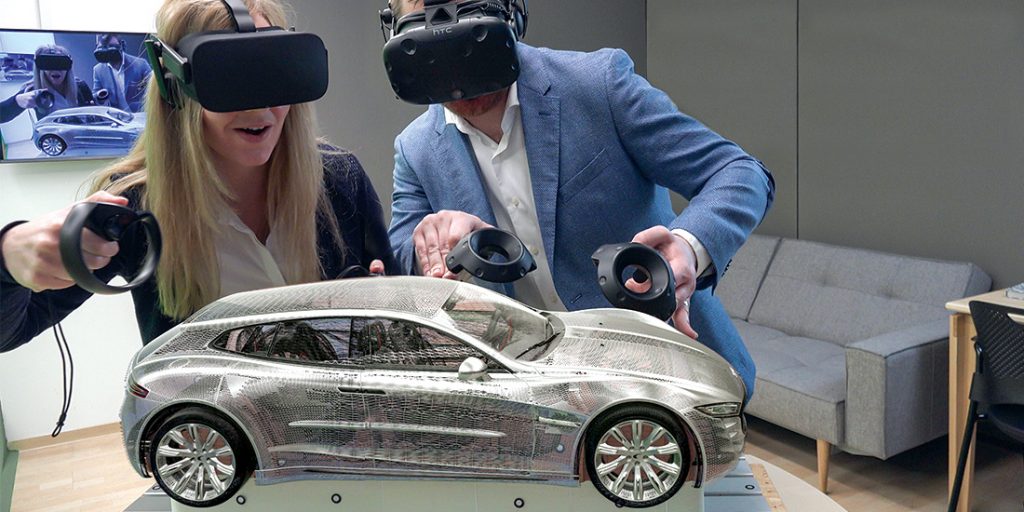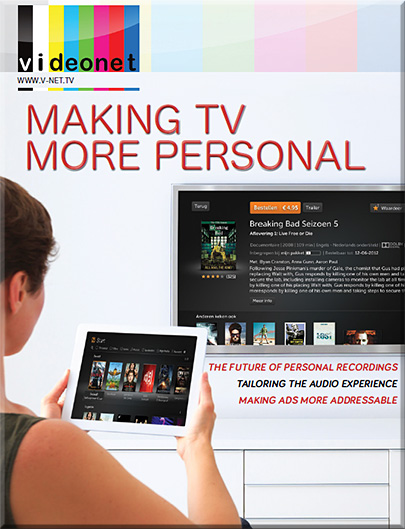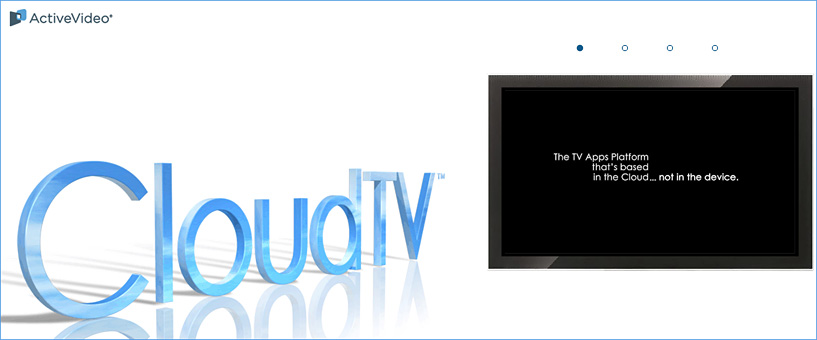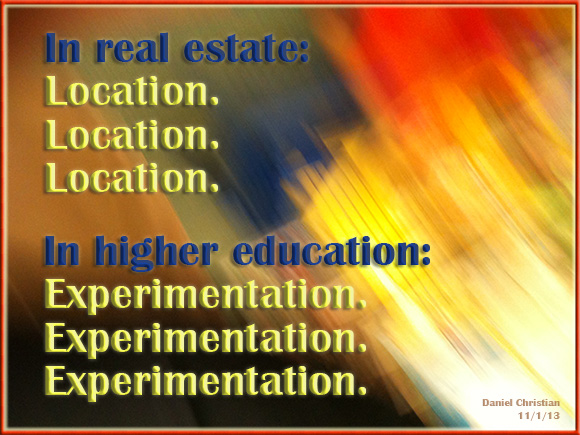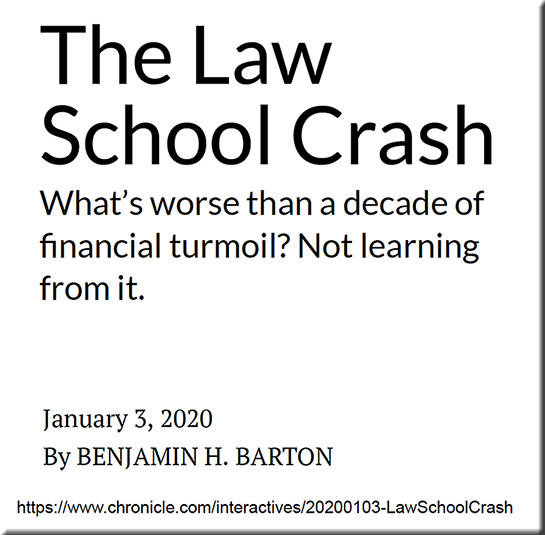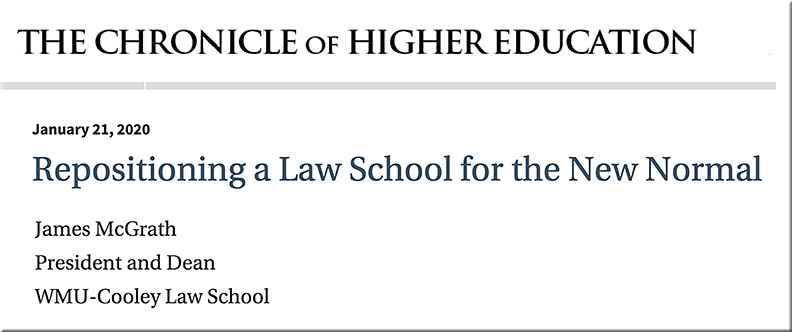Private Schools Have Become Truly Obscene — from theatlantic.com by Caitlin Flanagan and was published online on March 11, 2021; with thanks to Ryan Craig for this resource.
Elite schools breed entitlement, entrench inequality—and then pretend to be engines of social change.
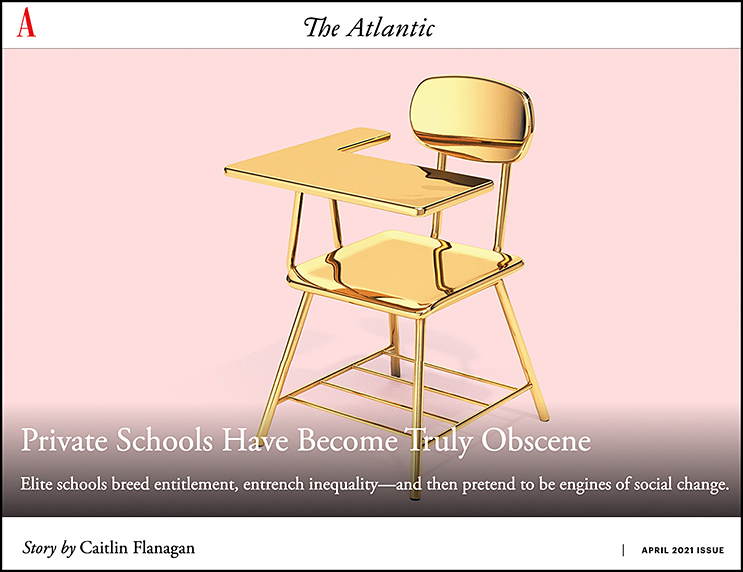
Excerpts:
These schools surround kids who have every possible advantage with a literal embarrassment of riches—and then their graduates hoover up spots in the best colleges. Less than 2 percent of the nation’s students attend so-called independent schools. But 24 percent of Yale’s class of 2024 attended an independent school. At Princeton, that figure is 25 percent. At Brown and Dartmouth, it is higher still: 29 percent.
The numbers are even more astonishing when you consider that they’re not distributed evenly across the country’s more than 1,600 independent schools but are concentrated in the most exclusive ones—and these are our focus here. In the past five years, Dalton has sent about a third of its graduates to the Ivy League. Ditto the Spence School. Harvard-Westlake, in Los Angeles, sent 45 kids to Harvard alone. Noble and Greenough School, in Massachusetts, did even better: 50 kids went on to Harvard.
However unintentionally, these schools pass on the values of our ruling class—chiefly, that a certain cutthroat approach to life is rewarded.
But what makes these schools truly ludicrous is their recent insistence that they are engines of equity and even “inclusivity.” A $50,000-a-year school can’t be anything but a very expensive consumer product for the rich. If these schools really care about equity, all they need to do is get a chain and a padlock and close up shop.
“In practice, however, meritocracy now excludes everyone outside of a narrow elite.” This is a system that screws the poor, hollows out the middle class, and turns rich kids into exhausted, anxious, and maximally stressed-out adolescents who believe their future depends on getting into one of a very small group of colleges that routinely reject upwards of 90 percent of their applicants.
…
This is why wealthy parents think it’s life-and-death to get their kids into the right prep school—because they know that the winners keep winning.
From DSC:
Reading this article that was mainly about private secondary schools, I still can’t help but say that I feel this way about my alma mater — Northwestern University in Evanston, IL (even though it’s a university). They have lost their footing over the years. They’ve become unanchored from their motto — Philippians 4:8 — and they’ve long ago left the original faith-based intent of its founders when it was founded in 1851.
As a Christian, I’m not happy at all with their direction. I notice that they pay lip service to equity and will sprinkle in an article or two here and there (in their alumni magazine for example) about how they are helping inner-city Chicago youth or some such topic.
But when the retail price that NU charges for ***one*** year of undergraduate work will cost you $79,342 (and thus $317,368+ for a degree), you’ve got to be kidding me!
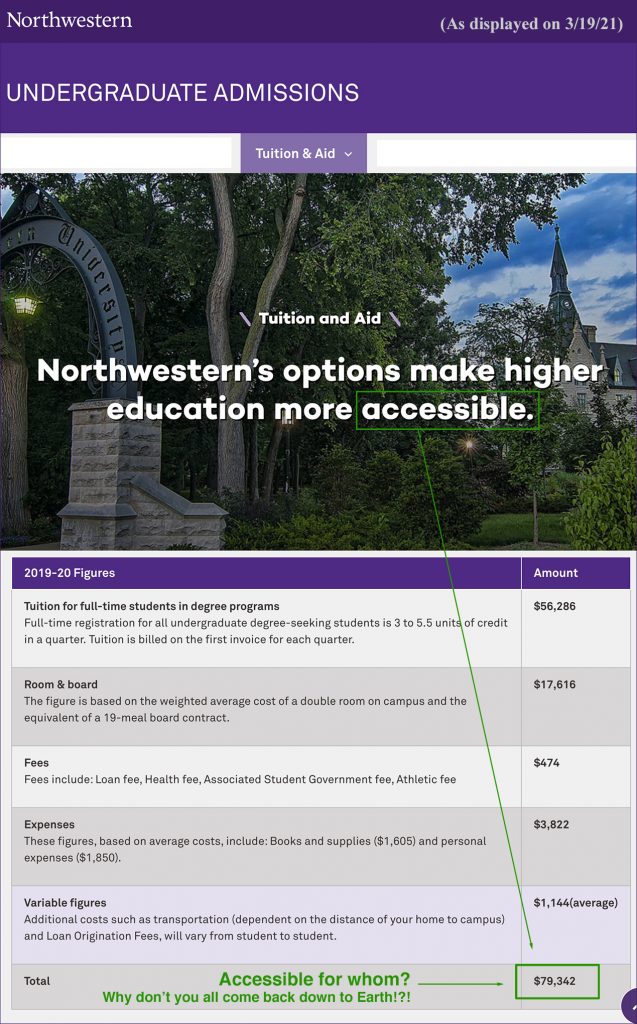
And based upon my experience when I went there many years ago, courses were taught by:
- Professors who had never been taught how to teach before
- Professors who were not rewarded for their teaching, but rather they were awarded based upon their research
- …and/or by graduate students who hadn’t been taught how to teach either
It must be all about the brand I guess. But I don’t think it’s worth it anymore — not at this kind of pricing!
Words are easy to say — but much harder to back up.
Addendums on 3/23/21:
Old Boys’ Clubs and Upward Mobility Among the Educational Elite — from nber.org by Valerie Michelman, Joseph Price & Seth D. Zimmerman; with thanks to Megan Zahneis at the Chronicle for this resource
Addendum on 4/11/21:
Calling all rich parents — from chronicle.com — which points to “We, the Privileged Parents That Matter, Applaud the Netflix College-Admissions Scandal Doc” — from chronicle.com by Eric Hoover









